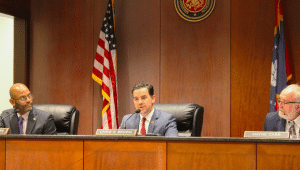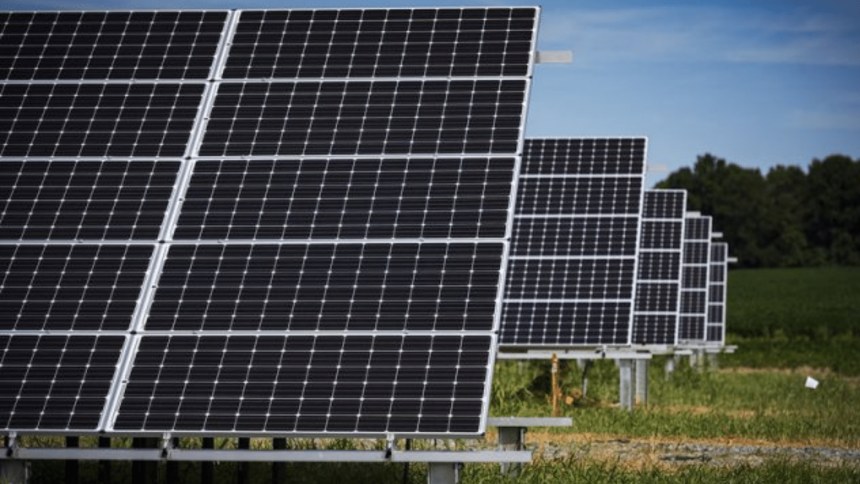The federal government will no longer offer taxpayer subsidies for solar panels being placed on farmland, U.S. Agriculture Secretary Brooke Rollins announced this week.
Department heads under the Trump administration argue that subsidized solar farms have made it more difficult for farmers to access farmland by making it more expensive and less available. Since 2012, the presence of solar panels on farmland nationwide has increased by nearly 50%, per USDA statistics. The federal agency is also barring solar panels manufactured by foreign adversaries from being used in government-subsidized projects.
“Our prime farmland should not be wasted and replaced with green new deal subsidized solar panels. It has been disheartening to see our beautiful farmland displaced by solar projects, especially in rural areas that have strong agricultural heritage,” Rollins stated. “One of the largest barriers of entry for new and young farmers is access to land. Subsidized solar farms have made it more difficult for farmers to access farmland by making it more expensive and less available.
“We are no longer allowing businesses to use your taxpayer dollars to fund solar projects on prime American farmland, and we will no longer allow solar panels manufactured by foreign adversaries to be used in our USDA-funded projects.”
In Mississippi, Northern District Public Service Commissioner Chris Brown is praising the decision to end the federal solar panel subsidy and prohibit products made by nations deemed hostile to the U.S. from being used in federal solar projects.
“Secretary Rollins is right to ensure that the heartland is not sacrificed in the name of poorly planned subsidies or foreign supply chains. Energy leadership means producing more American energy, on American soil, using American labor and materials,” Brown said.

“That is why the USDA’s decision to block taxpayer dollars from subsidizing solar panels made in adversarial nations is so important,” he continued. “When we rely on panels from Beijing, we weaken our strategic position. When we empower American workers and producers, we strengthen it.”
According to a release from the USDA, the elimination of these solar subsidies is expected to eliminate market distortions and costs imposed on taxpayers. The move also follows modifications to funding for “green” energy initiatives through Trump’s self-proclaimed “big, beautiful bill.” Specifically, wind and solar projects are no longer eligible for funding through the USDA’s Rural Development Business and Industry Guaranteed Loan program.
Additionally, for the USDA’s Rural Development Rural Energy for America Program Guaranteed Loan program, American farmers, ranchers, and producers using wind and solar energy sources will be inclined to install units that are right-sized for their facilities.
If project applications include ground mount solar photovoltaic systems larger than 50kW or ground mount solar photovoltaic systems that cannot document historical energy usage, they will no longer be eligible for the federal loan program, and priority points will no longer be given for these grants, per the USDA.
“Our position in Mississippi is not anti-solar. We recognize the value of solar for private use, whether by homeowners, farmers, or businesses that choose to invest in panels for their own energy needs,” Brown added. “But the future of energy is not going to be built on large footprints of unreliable sources that take prime farmland out of production and raise costs for families.
“It will be built on resources that are dependable, affordable, and American-made. In Mississippi, we are focused on energy sources that are 100% reliable, 100% of the time, such as nuclear and natural gas. Families and businesses cannot afford to depend on intermittent sources that fail when the sun doesn’t shine or the wind doesn’t blow.”
Brown maintains that he, as the public service commission’s chairman, will continue to support the Trump administration’s efforts surrounding American energy and power supply.








